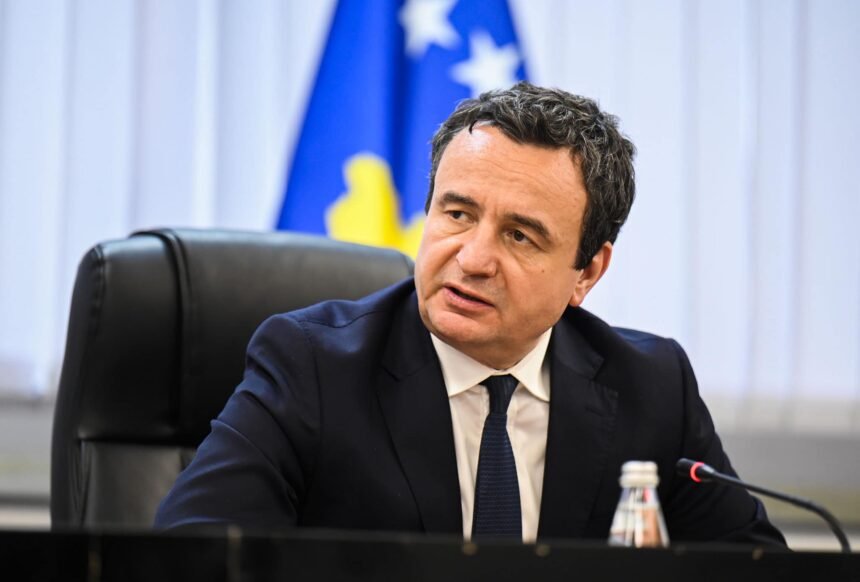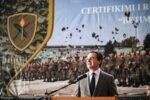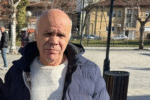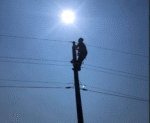Acting Prime Minister of Kosovo, Albin Kurti, stated on Friday that Serbia could use “destructive elements” to incite incidents during the Serbian holiday of Vidovdan on Saturday in Gazimestan, approximately 10 kilometers from the capital, Prishtina.
Speaking at a caretaker government meeting, Kurti said that Serbia would attempt to shift attention from the anti-government protests expected in Belgrade on Saturday by provoking incidents in Kosovo. Serbs from Kosovo, Serbia, and the region traditionally mark Vidovdan on June 28 at Gazimestan, a historical monument near Prishtina.
Concerns Over Provocative Groups and Symbolism
Kurti stated that, according to security and intelligence assessments, there are efforts to make the gathering in Gazimestan “as massive as possible.” To this end, groups of Serbs from Serbia, Montenegro, and Bosnia and Herzegovina have been organized to come to Kosovo tomorrow.
“Such groups have traditionally been provocative, carrying Serbian and Russian nationalist symbols that are contrary to the Constitution of Kosovo and are also against democratic and European values,” Kurti warned. He added that the Vidovdan holiday, “although religious in nature, has unfortunately consistently been accompanied by political rhetoric, inciting and threatening public security from Serbia’s side.”
Legal Rulings and Historical Context
Weeks ago, the Basic Court in Prishtina overturned a decision by the Municipality of Gračanica to display the Serbian flag for Vidovdan in 2024. The court reasoned that the municipality had exceeded its competencies and acted contrary to Kosovo laws by approving a decision to display the Serbian flag on June 28 – a day not designated as an official holiday in Kosovo.
Kurti emphasized that Vidovdan gatherings must be held in accordance with the law, “not be turned into a means for political instrumentalization by authorities in Belgrade.” The gathering is usually secured by the Kosovo Police, and in recent years, the display of Serbian flags or other national symbols (apart from ecclesiastical ones) has not been permitted, as the commemoration is also organized by the Serbian Orthodox Church in honor of the 1389 battle against the Ottoman army.
Last week, Kosovo’s acting Minister for Communities and Returns, Nenad Rašić, called for respect for the Serbian community’s rights regarding the use of their symbols. He stated that the use of the Serbian flag by Serbs “does not pose a threat to anyone’s identity, but is proof of Kosovo’s commitment as a democratic society based on respect for human and minority rights.” Lista Serbe, the largest Serbian party in Kosovo with Belgrade’s support, accused Kurti of displaying the national flag of Albania during Assembly sessions and demanded that the court apply “the same standards and reasoning to cases related to the Albanian flag.”
Last year, Vidovdan celebrations in Gazimestan passed without incident. However, in previous years, there have been arrests for inciting religious and national hatred. In 2023, Vidovdan was not celebrated in Gazimestan – its traditional site – due to the deteriorating security situation in northern Kosovo.
Gazimestan in Kosovo is also known for the speech of former Serbian President Slobodan Milošević, who, on June 28, 1989, did not exclude “armed battles.” Milošević’s speech was seen by many as a warning of the wars that followed in the 1990s in the former Yugoslavia. On the same day in 2001, Milošević was extradited to the Hague Tribunal, which accused him of war crimes. He died in custody in 2006, before the final verdict.







